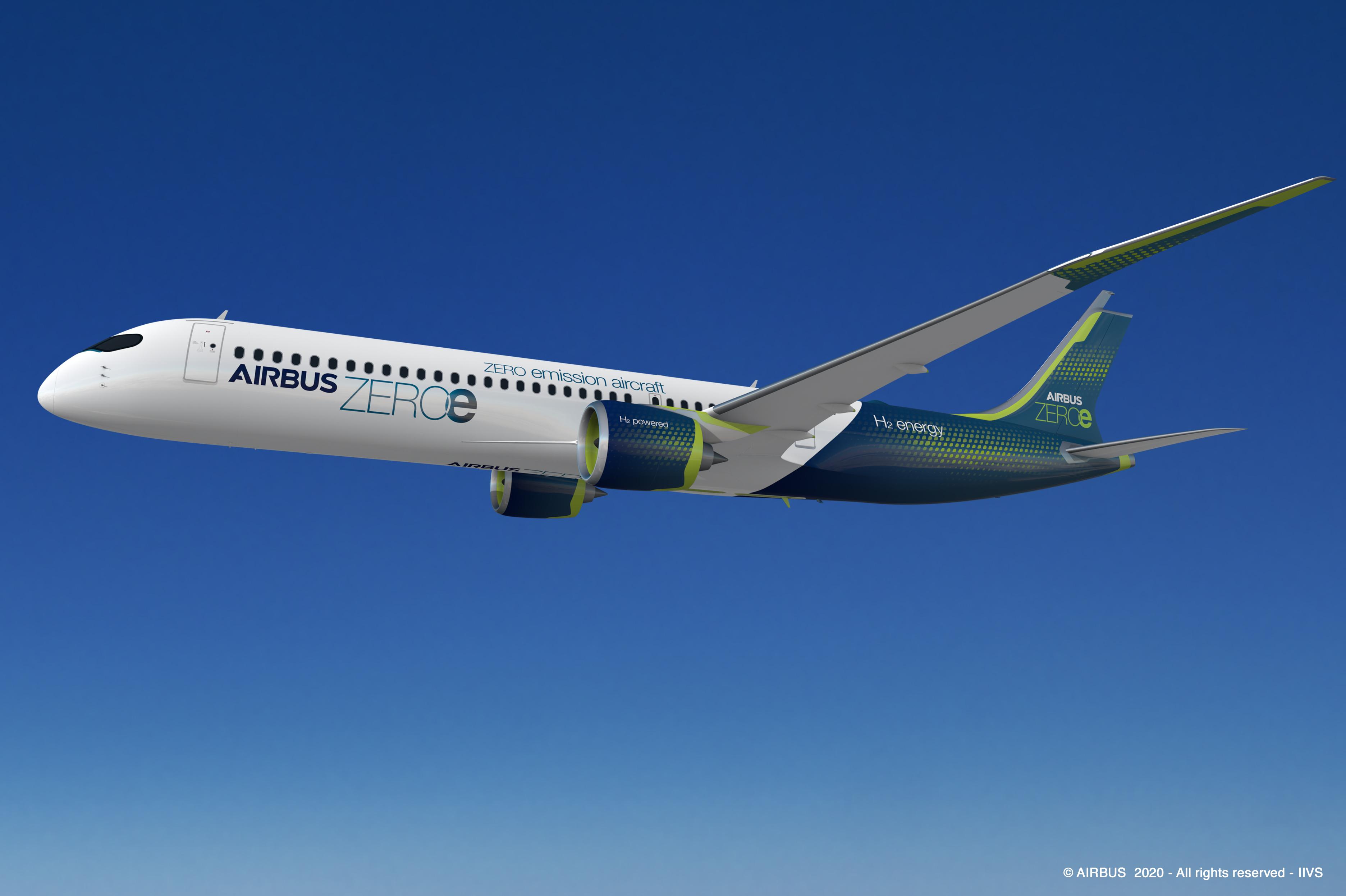
Airbus has formed a joint company with German automotive fuel-cell supplier ElringKlinger to develop technology for zero-emission, hydrogen-fueled aircraft.
The partnership will develop aviation-compatible fuel-cell stacks, beginning with the delivery this year of stacks and a customized test rig.
ElringKlinger will have a non-controlling interest in the newly established joint company, it said in a statement, while Airbus will hold the majority stake. ElringKlinger will provide technology relevant to hydrogen fuel cells in return for “compensation in the low-to-mid double-digit million euro range.”
Airbus has committed to bringing a zero-emission commercial aircraft to market by 2035 and is studying three concepts for airliners that would use liquid hydrogen in a combination of direct combustion in turbine engines and electrical generation in fuel cells.
ElringKlinger said it was selected by Airbus after it had conducted an extensive analysis of the international fuel-cell market. The company supplied fuel-cell stacks for testing as part of a pre-contractual phase and these exceeded the target power density by 15%, it said.
In a proton exchange membrane fuel cell, hydrogen flows into the stack and onto the anode, where it is split into hydrogen ions and electrons. Ions permeate across the membrane to the cathode, while electrons flow through an external circuit and generate power. Oxygen, in the form of air, is supplied to the cathode, where it combines with the hydrogen ions and electrons to produce water.
ElringKlinger says the key to the high power-density of its stack is the use of metallic bipolar plates and specially designed membrane electrode assembly sealing. Bipolar plates distribute the hydrogen gas and air, conduct electrical current from cell to cell, remove heat from the active area, and prevent leakage of gases and coolant. They significantly contribute to the volume, weight and cost of fuel-cell stacks.
The aviation industry is tapping the automotive market as it looks to fuel cells to enable zero-emission flight. Under the UK government-funded HyFlyer project, startup ZeroAvia is working with Intelligent Energy to optimize its high-power fuel cells for small, medium-range passenger aircraft.
Another startup, Universal Hydrogen, has selected automotive fuel-cell developer Plug Power to develop a 2-megawatt power system for its conversion of the De Havilland Canada Dash-800 regional turboprop, and potentially the ATR 42, to hydrogen propulsion.
Meanwhile, Honeywell Aerospace has acquired assets from Ballard Unmanned Systems, a subsidiary of automatic fuel-cell manufacturer Ballard Power Systems. The acquisition positions Honeywell in the fuel-cell market for unmanned aircraft and broader aviation applications including urban air mobility.





